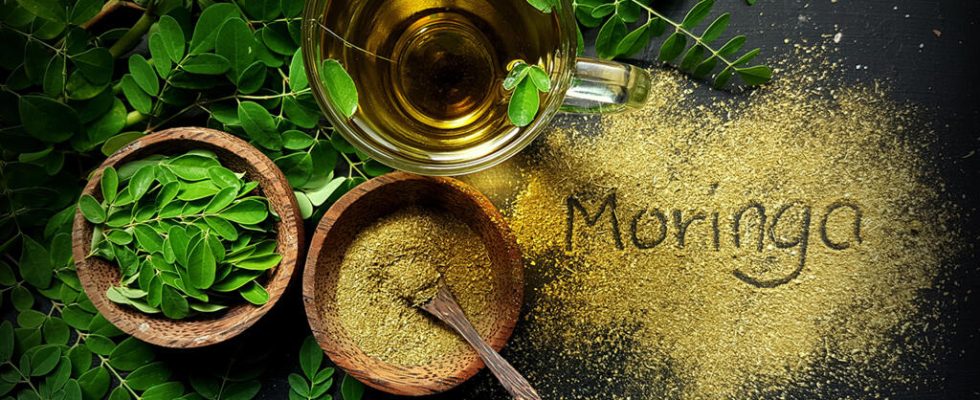Every Monday, we find the nutrition column of Binetou Cheikh Seck, dietitian nutritionist at NutrIDEAL Dietetic Cabinet in Dakar, Senegal. This week, she tells us about moringa, a plant whose leaves are edible and which are believed to have therapeutic properties.
2 mins
First, what is it about?
It is a plant native to northern India but found in many tropical areas including Africa. Moringa leaves are edible. In Senegal, they have been eaten whole since time immemorial in a sauce called Mbuum. In recent years, moringa has become very popular around the world – so all kinds of recipes have been created around this plant.
Why exactly are we focusing today on these moringa leaves?
Because moringa is in fashion. Many nutritional and therapeutic virtues are attributed to this plant, so much so that many people consume moringa powder daily as a food supplement, in the form of an infusion, juice, etc. It is therefore important to take stock.
What does moringa provide from a nutritional point of view?
Moringa is said to be a superfood and its sale in various forms has become a real business. It is true that moringa leaves are rich in protein, calcium and iron and that in powder form the concentration of these nutrients increases. But the protein and iron in moringa are poorly available (very poorly assimilated by the body): only 2% of the iron is absorbed. Additionally, since moringa is very light, you would have to consume kilos of leaves to obtain a significant amount of nutrients. So supplementing the diet with moringa ultimately has little benefit for malnourished people and even less benefit for people who eat a balanced diet.
And from a therapeutic point of view?
I have listed the therapeutic virtues attributed to moringa:
- energy booster
- anti inflammatory
- anti-bacterial (boosts the immune system)
- detoxifying
- reduces sugar levels in diabetics
- reduces cholesterol
- anticancer
- reduces blood pressure
The scientific reality is that moringa has been the subject of much study and there is no scientifically convincing data that it has these therapeutic benefits.
In terms of moringa consumption, what are your recommendations?
Beyond consuming moringa in our sauces, I have no scientific reason to recommend moringa supplementation. For those who still want to take it, be careful of its laxative effect and certain toxic components of the bark, roots and flower of moringa.
